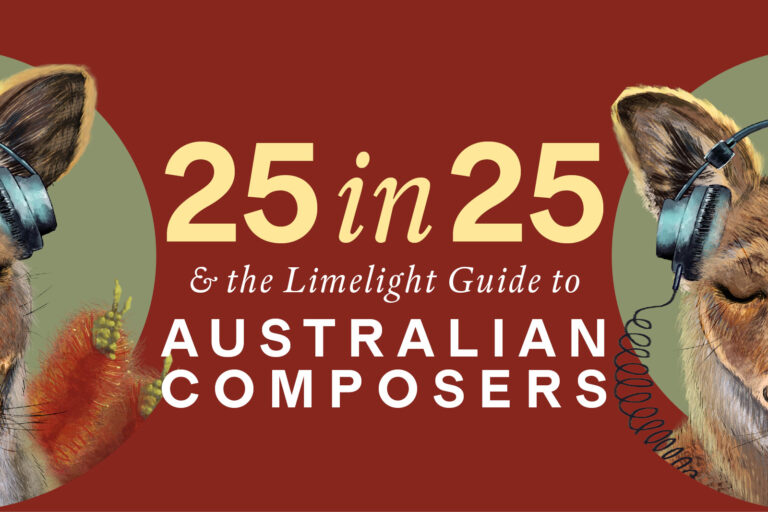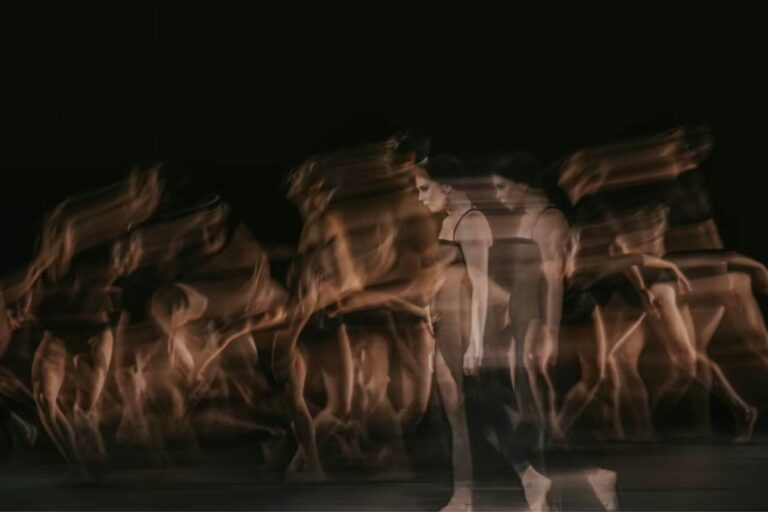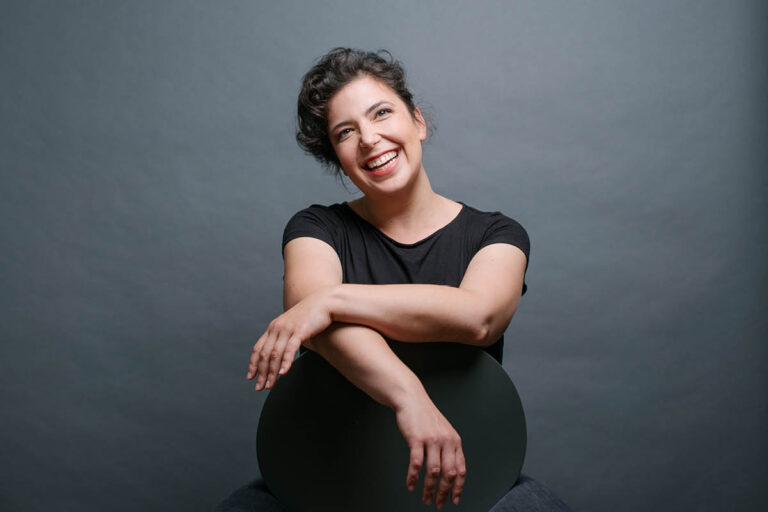Hot on the heels of Victorian Opera’s 2026 season announcement, in which popular, bankable operas are noticeably absent, the company dares to offer a rarity in Australia: a Leoš Janáček opera, in the original Czech. Katya Kabanova is a tragedy, with no arias or choruses; it’s not one for the masses.
What appeals is the bold, beautiful score, conducted for this lamentably short two-performance season by Alexander Briger, who inherited the Janáček expertise of his uncle, Sir Charles Mackerras.
That’s a coup for Victorian Opera, which has also struck gold with the powerful and refreshingly new cinematic approach of this production directed by Heather Fairbairn.
It’s an ambitious project, but the all-Australian, mostly young cast and the also youthful Australian National Academy of Music (ANAM) Orchestra are equal to the challenge.

Desiree Frahn and Andrew Goodwin in Victorian Opera’s Katya Kabanova. Photo © Jeff Busby
Premiering in the Czech city of Brno in 1921, Katya Kabanova is set in a small Russian town where the title character feels trapped by her marriage and community’s...
Continue reading
Get unlimited digital access from $4 per month
Already a subscriber?
Log in










Comments
Log in to start the conversation.